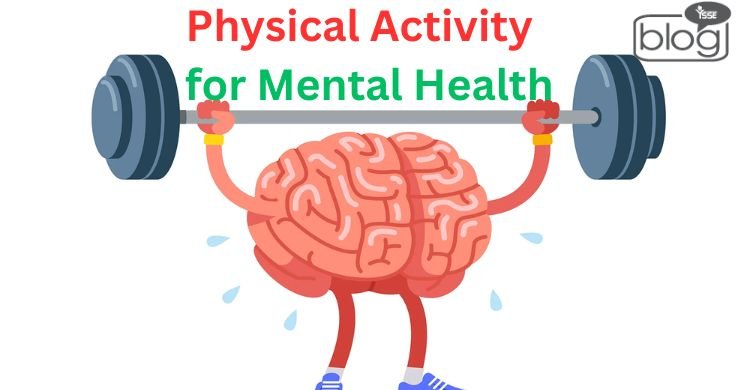In an age marked by excited civilizations and building up stress levels, the significance of maintaining internal well-being has never been further apparent. One avenue that has gained substantial attention for its positive impact is physical exertion.
Beyond the physical benefits, regular exercise has proven to be a significant tool in enhancing mental health. This composition explores the profound connection between physical exertion and internal well-being, slipping light on how incorporating exercise into one’s routine can contribute to a healthier mind and body.
Release of Endorphins:
Physical activity triggers the release of endorphins, frequently related to the body’s” feel-good” hormones. These chemicals act as natural painkillers and stress relievers, creating a sense of paradise. Whether it’s a brisk walk, a heart-pumping run, or a comforting yoga session, the release of endorphins helps relieve symptoms of anxiety and depression, promoting an overall positive mood.
Reduction of Stress and Anxiety:
The demands of day-to-day life can lead to heightened stress situations, affecting both internal and physical well-being. Regular physical exertion has been shown to reduce the production of stress hormones, such as cortisol. Engaging in exercise like jogging or swimming provides an outlet for pent-up tension, promoting relaxation and a calmer state of mind. Besides, the rhythmic nature of certain exercises can induce a thoughtful state, additionally reducing anxiety levels.
Improved Sleep Quality:
Proper sleep is integral to mental health, and physical activity is vital in achieving this. Regular exercise helps regulate sleep patterns, making falling asleep and staying asleep easier. The relationship between physical activity and upgraded sleep quality contributes to better cognitive function, increased emotional adaptability, and an overall enhanced sense of well-being.
Enhanced Cognitive Function:
Physical activity has a positive impact on cognitive function, including memory, attention, and problem-solving proficiency. Exercise increases blood inflow to the brain, promoting the growth of new neurons and supporting synaptic malleability. This, in turn, enhances cognitive capacities and can help shield against cognitive decline associated with aging.
Social Interaction:
Multiple forms of physical activity, such as team sports or group fitness classes, encourage social relations. Building and maintaining social connections are vital aspects of internal well-being. Engaging in physical exercise with others provides a chance for socializing, fostering a sense of belonging, and reducing heartstrings of aloneness.
Boosted Self- Esteem and Confidence:
Regular physical activity contributes to advancements in body image and self-esteem. Achieving fitness ambitions, whether big or small, can plant a sense of accomplishment and boost confidence. The positive changes in physical appearance and the sense of control over one’s health frequently paraphrase to increased self-worth and more positive self-perception.
The testament supporting the positive impact of physical activity on mental well-being is compelling. Incorporating regular exercise into one’s routine can be a visionary and effective strategy for maintaining internal health. Whether it’s through the release of endorphins, stress reduction, proper sleep, enhanced cognitive function, social interaction, or boosted self-esteem, the benefits of staying physically active extend far beyond the confines of the gym.
As individuals strive to achieve a holistic sense of well-being, honoring and embracing the symbiotic relationship between physical activity and mental health becomes gradually imperative.
For more content, Click Here.
Writer
Shihab Shahriar Sporsho
Intern
Content Writing Department, YSSE

